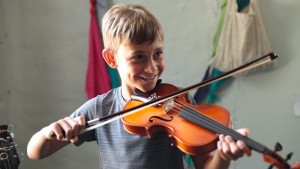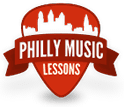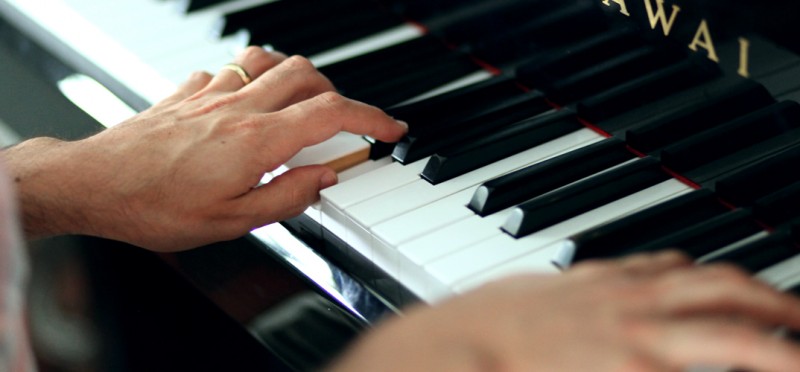
10 Techniques For Developing A Musical Practice
By Nicholas Krolak
A musician’s performance on stage is a direct expression of the time and energy spent in the practice room. Therefore, having a clear and effective practice strategy is invaluable. Here are a few proven techniques for improving practice outcomes, spending practice time more effectively, and having more fun.
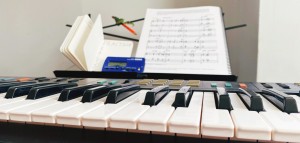
1. Block Distractions
Practice begins before you even touch your instrument. Life is full of distractions, but your practice space should be your sanctuary. A place of focus. You will get so much more out of your practice time in an environment that is calm and distraction free (as much as possible).
2. Set Goals
Think of what your goals for that practice day are. Keep them small and completable. There is no need to overwhelm yourself. Practicing one thing thoroughly is always better than practicing ten things superficially. Be sure to write down your daily goals in a practice journal, where you can also record your weekly, monthly, and yearly goals.
3. Visualize
Before playing a piece, scale, or etude, try closing your eyes and visualizing yourself playing it. How does it feel? How does it sound? Now try playing it. Does it match your visualized experience? If not, visualize it again and focus on the difficult parts. Get your mind around it first and your body will follow.
4. Practice Slow
Most music students, including myself, are in a hurry to play a piece at full tempo or beyond. They key to playing fast, is playing slow. Slowing down a piece will reveal all the stumbling blocks and how to get past them. You may have to decrease the tempo many times to fully smooth out a piece, but in the long run it is worth it.
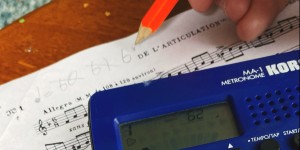
They key to playing fast, is playing slow.
5. Use a Metronome
A metronome is a great tool to help you develop and strengthen your internal clock. However, most music students either don’t use one, or use it incorrectly. When playing something for the first time it is fine to have the metronome playing all the beats. Once it is a little more comfortable, try muting one beat, then two beats, then three beats. Muting beats forces you to keep track of the time, and the metronome will let you know how successful you were.
6. Use a Drone
A drone is like a metronome for pitch. It gives you instant feedback on your intonation. Set a drone to the tonic pitch of the piece to make sure your intonation stays constant. Observe when it drifts, and bring it back.
7. Focus on the Crux
The crux is the hardest part of a piece of music. It is very common for students to play the parts they know as fast as they can, stumble through the hard part (at a much slower tempo), and call it a day. This is ineffective. It is a better use of time to spend most of your practice time on the hardest part. This is where big gains is musical growth will happen.
8. Chunking
“Chunking” is the process of working on a larger piece by breaking it into chunks. Working chunk by chunk and then working to connect them is much more effective than playing a piece from start to finish every time.
9. Record Yourself
Record your practice sessions and performances and listen back to them periodically. What needs to improve? What are your strengths? Write observations down in your practice journal, and use your insights to set or redesign goals.
10. Have Fun!
Musical practice is one of the most challenging and rewarding pursuits, but can be tedious at times. Whenever, it gets boring, try making a game for yourself or to be played with others. Write your own etude or duet, try playing another instrument, or go see some live music. Keeping it fun will help motivate and stimulate your musical experiences.
